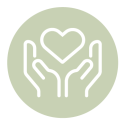The Dual Role: Navigating Caregiving for Healthcare Professionals
Since 1994, November has been designated National Family Caregivers Month to honor the over 50 million family caregivers in the United States. As the population ages, the number of informal caregivers grows, many of whom are also healthcare providers, including mental health professionals—often called “double-duty caregivers.” These individuals are naturally inclined to care, with careers centered on healing, supporting, and empathizing with others. However, when they take on caregiving roles outside their professional practice—caring for aging parents, children, or loved ones—they face unique challenges. Balancing these dual responsibilities can be both rewarding and overwhelming, requiring careful management of time, energy, and emotional resources. This blog examines the specific challenges healthcare providers face as both professionals and personal caregivers, the impact on their well-being, and strategies for navigating these overlapping roles with resilience and compassion.
Caregivers play a critical role in allowing millions to remain at home, offering an alternative to institutional care. As stated in the 2022 Presidential Proclamation, “Family caregivers are the backbone of our Nation’s long-term care system, doing essential work with devotion, often at great emotional and financial cost.” For those who are also healthcare providers, the demands of dual caregiving can be even more weighty. These “double-duty caregivers” manage the emotional and physical needs of clients or patients while providing care for family members, often without sufficient support systems. Caregiving brings significant challenges, including demanding tasks, physical strain, and emotional stress. National Family Caregivers Month highlights their invaluable contributions and serves as an opportunity to advocate for more support, ensuring caregivers can live fulfilling lives while continuing their essential roles.
Understanding the Dual Role
Caregiving is a natural extension of the health professions, but when it becomes a personal responsibility, the challenges can compound. A double-duty care provider must navigate two worlds that often demand similar qualities: empathy, patience, and the ability to manage stress. In their professional lives, providers are trained to create emotional boundaries and maintain a degree of objectivity. However, personal caregiving often lacks these boundaries, requiring a deep emotional investment that can feel unrelenting.
While the skills honed in their professional work—like active listening and stress management—can be helpful, the personal nature of caregiving adds complexity, especially with family dynamics at play. For many providers, caregiving becomes an around-the-clock responsibility, leaving little time to recharge.
Navigating both roles is no small feat, and providers often face several challenges:

Time and Energy Management: Balancing work responsibilities with the often-unpredictable demands of caregiving can lead to chronic stress. Providers may find themselves sacrificing sleep, hobbies, or personal relationships to meet the needs of others.

Emotional Toll: Compassion fatigue is a well-known risk for health professionals, but the added layer of personal caregiving can intensify emotional exhaustion. Constantly caring for others—both at work and home—can leave providers feeling drained and depleted.

Guilt and Self-Judgment: Many caregivers experience guilt for feeling they are not doing enough. For providers, who may feel they “should know better,” this guilt can be compounded by self-judgment.

Blurred Boundaries: It can be difficult to separate the emotional weight of caregiving from professional responsibilities, leading to over-identification with clients or difficulty compartmentalizing stress.
The Impact on Mental Health and Well-Being
The dual role of caregiving can have profound effects on well-being. The constant demand for emotional energy often leads to stress and burnout, which can negatively impact a provider’s ability to perform their professional duties and care for themselves. Personal caregiving responsibilities can also reduce time for social interactions, straining relationships and leaving caregivers feeling isolated and unsupported. Additionally, chronic stress from juggling these roles can take a significant toll on physical health, increasing the risk of conditions such as hypertension, insomnia, and immune dysfunction. The cumulative impact of these stressors highlights the importance for healthcare providers to find ways to care for themselves while managing their caregiving responsibilities.
Double-duty caregivers face immense mental and physical exhaustion as they juggle dual responsibilities, yet their needs for self-management and work-life balance are often overlooked. A study in the Netherlands explored their experiences, revealing significant challenges such as internal and external pressures, insufficient workplace social support, and the need for greater flexibility and communication with employers and community care organizations. Self-management skills were identified as a key factor in enabling caregivers to advocate for necessary support. The findings underscore the urgent need for proactive measures across healthcare systems, workplaces, and community organizations, including flexible policies, improved collaboration, and sustainable solutions to prevent burnout and maintain employability.
Strategies for Navigating the Dual Role

Prioritize Self-Care: Self-care is a term that’s often overused or weaponized, yet it remains essential for maintaining the energy and resources needed to care for others. Each day, choose one thing that supports your well-being, giving you the strength to show up fully for others—both at work and at home. Prioritize taking care of yourself in whatever way feels right for the moment.

Receive Support: Helpers often struggle to accept support from their network of family, friends, and colleagues. However, learning to accept help when it’s offered—or knowing when to ask for it—is crucial in preventing caregiver burnout and compassion fatigue. Additionally, seeking professional support, such as therapy, can be invaluable for processing experiences and navigating the challenges of dual caregiving.

Practice Self-Compassion: Taking time to honor your feelings of distress, grief, and sorrow while recognizing your connection to common humanity can be a powerful practice during dual caregiving. This approach not only offers emotional support but also helps you release perfectionism and embrace your limitations with compassion.

Leverage Professional Skills: Use therapeutic techniques like reframing negative thoughts, setting boundaries, and prioritizing tasks to manage caregiving stress.
The dual role of mental health provider and personal caregiver is a profound responsibility, and while it comes with its challenges, it is not without hope. By acknowledging the toll this dual responsibility can take and incorporating strategies for self-care and support, providers can approach these roles with resilience and grace. Taking care of yourself is essential not only for your own well-being but also to ensure you can continue to serve those who are important to you—both professionally and personally. As the saying goes, “You can’t pour from an empty cup.” Make prioritizing your own health a top priority, so you can continue to show up for the people in your life. It’s also important to remember that the burden should not fall solely on the individual. Systemic change is needed to provide better support, resources, and infrastructure for caregivers, ensuring they are not left to shoulder the weight alone. Additionally, supporting colleagues and friends who are navigating the dual role of caregiver is crucial. A network of understanding and compassion can make all the difference, offering both practical help and emotional support to prevent burnout and promote well-being.
References
Boumans, N. P. G., & Dorant, E. (2013). Double-duty caregivers: Healthcare professionals juggling employment and informal caregiving. A survey on personal health and work experiences. Journal of Advanced Nursing, 70(7), 1604–1615. https://doi.org/10.1111/jan.12320
Caregiver Action Network. (2024). National Family Caregivers Month. Retrieved November 18, 2024, from https://www.caregiveraction.org/nfc-month/
Detaille, S. I., de Lange, A., Engels, J., Pijnappels, M., Hutting, N., Osagie, E., & Reig-Botella, A. (2020). Supporting double duty caregiving and good employment practices in health care within an aging society. Frontiers in Psychology, 11, Article 535353. https://doi.org/10.3389/fpsyg.2020.535353
OpenAI. (2024). ChatGPT (Version 4) [AI language model]. Assisted in generating ideas and editing content for flow for a blog post on caregiving. Retrieved November 18, 2024, from https://chat.openai.com
Blog Post Tags:
Related Blog Posts
Related Learning Labs
Related Resources
.
- Buscar Tratamiento de Calidad para Trastornos de uso de Sustancia (Finding Quality Treatment for Substance Use Disorders Spanish Version)
- Finding Quality Treatment for Substance Use Disorders
- Focus On Prevention: Strategies and Programs to Prevent Substance Use
- Monthly Variation in Substance Use Initiation Among Full-Time College Students
- The National Survey on Drug Use and Health (NSDUH) Report: Monthly Variation in Substance Use Initiation Among Adolescents








